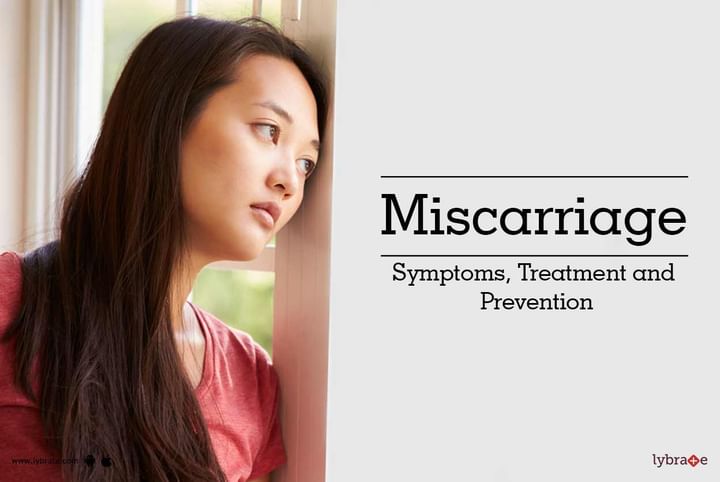Get the App
For Doctors
Login/Sign-up
Last Updated: Jan 10, 2023
BookMark
Report
Miscarriage - Symptoms, Treatment and Prevention
Miscarriage is the early loss of foetus within 20 weeks of pregnancy. It is also known as ‘spontaneous abortion’. According to research, about 8-20% of the pregnancies end in miscarriage. Out of the total number of miscarriages, 80% of them end within 12 weeks of pregnancy.
Types of Miscarriages and their Symptoms
- Threatened Miscarriage – As the term suggests, in this condition the process of miscarriage might have begun. This is the initial stage of the process. In threatened miscarriage, there is slight bleeding accompanied by cramps and pain in the lower back, which is usually mild. The cervix (the lower part of the uterus) remains closed.
- Inevitable and Incomplete Miscarriage – In these conditions, there is bleeding along with an open cervix. When there is dilatation and thinning of the cervix, miscarriage is inevitable. In incomplete miscarriage, part of the tissue comes out and a part remains inside the uterus. In inevitable and incomplete abortions, the bleeding and cramps are more severe.
- Complete Miscarriage – Complete miscarriage is when the embryo has completely emptied from the uterus. The pain and bleeding reduce once the foetus is expelled. This can be confirmed through ultrasound.
- Missed Miscarriage – In Missed miscarriage, there is no sign of the life of the embryo and there is no expulsion of the embryo. It can be detected from the absence of heartbeat of the embryo found on ultrasound.
- Recurrent Miscarriage – It happens when there are two or three miscarriages one after the other. It affects about 1% of the pregnancies.
Risk Factors
- Increased maternal age i.e., women above 35 years.
- Excess or insufficient chromosome in embryo.
- Placenta is the organ which links mother and the baby for blood supply. Problem in the development of placenta can cause miscarriage.
- Excessive smoking and drinking during pregnancy.
- Obese women have higher risk of miscarriage.
- Long-term health conditions like high blood sugar, high blood pressure, liver disease etc.
- Infections like rubella, malaria etc.
- Weakened cervix, which is the result of previous injury or surgery, can also result in miscarriage.
What are the symptoms of a miscarriage?
- Bleeding or spotting can be one of the symptoms of miscarriage. It should be kept in mind that not all pregnant women who suffer from spotting or bleeding, end in miscarriage.
- Lower backache starts before or right after bleeding, which can be persistent or you could have cramps which may be mild or sharp and can feel like more of pelvic pressure.
- Missed miscarriages are detected through ultrasound when the doctor finds that there is no heartbeat of the embryo or when the uterus is not growing.
What are the treatment options in miscarriage?
- Medical – In most of the cases, there are no specific drugs to stop a miscarriage from occurring. In some cases, certain hormonal preparations help. There is no point in prescribing medicines for prevention of miscarriage if there is heavy bleeding.
- Surgery – Dilatation and evacuation (D&E) is a simple operation which is done under general/local anaesthesia. In this operation, the cervical canal is dilated and contents present in the uterus are evacuated. There is no cutting involved as it happens through the vagina. The process needs only five to ten minutes, but the patient has to stay in the hospital for about 3-4 hours.
This process is opted when:
- There is heavy bleeding.
- The patient suffers from missed miscarriage.
What can you do to prevent miscarriage?
Nothing much can be done to prevent miscarriage in most of the cases. However, following supportive measures may help:
- There should not be overexertion during pregnancy. Moderate amount of physical activity is permissible.
- One should have a well-balanced diet. Studies have shown that a diet loaded with fruits and veggies helps in overall well-being during pregnancy. One should limit the consumption of caffeine.
- Avoid smoking, alcohol and certain drugs to prevent miscarriage.
- Avoid stress and anxiety.
Report to a Doctor as soon as any symptom related to miscarriage appears.



+1.svg)
